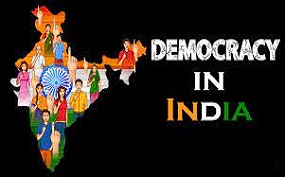
Political thought, or political philosophy, studies questions about power, justice, rights, law, and other issues related to governance. While some believe these concepts are static, political thought asks how they originated and to what effect.
- Teacher: Dr. Seema Mallik
- Teacher: Dr. Swapna S. Prabhu
- Teacher: Rajesh Kumar Sahoo
- Teacher: Admin User

Research methodology is the overall strategy or approach used to conduct research. It includes the theoretical and philosophical underpinnings of the research, the research design, data collection methods, and data analysis techniques. Research methodology can differ from problem to problem, but the basic approach remains the same.
- Teacher: Dr. Smita Nayak
- Teacher: Admin User

India's foreign policy has always regarded the concept of neighbourhood as one of widening concentric circles, around a central axis of historical and cultural commonalities. As many as 44 million people of Indian origin live and work abroad and constitute an important link with the mother country.
- Teacher: Dr. Seema Mallik
- Teacher: Dr. Swapna S. Prabhu
- Teacher: Admin User

The Indian democratic system underwent several alterations over time. Democracy in India exists for decades now. As for the history of democracy in general, the term democracy was derived from the Ancient Greek philosophical and political thought residing in the city-state of Athens in classical antiquity.
- Teacher: Dr. Seema Mallik
- Teacher: Dr. Smita Nayak
- Teacher: Dr. Swapna S. Prabhu
- Teacher: Admin User

- Teacher: Rajesh Kumar Sahoo
- Teacher: Admin User
